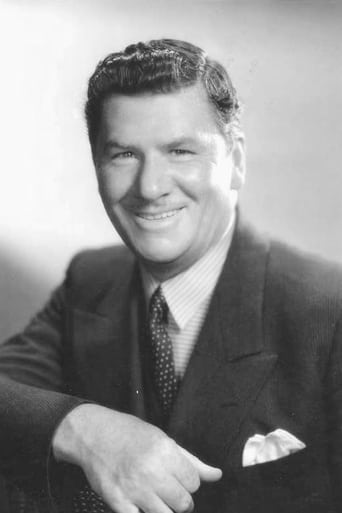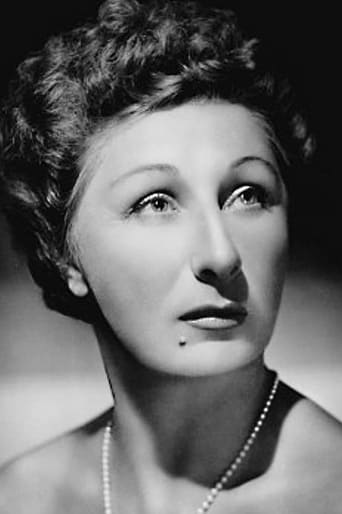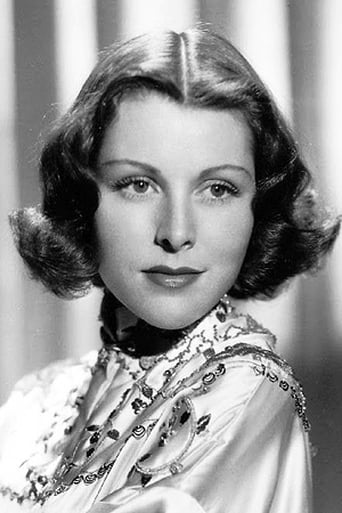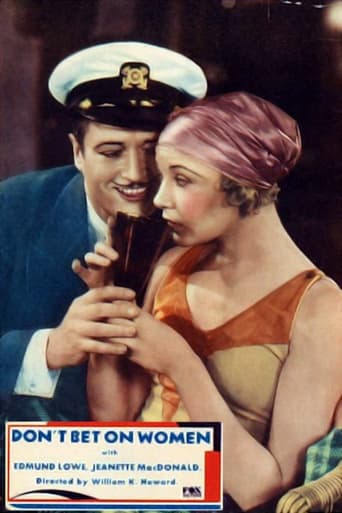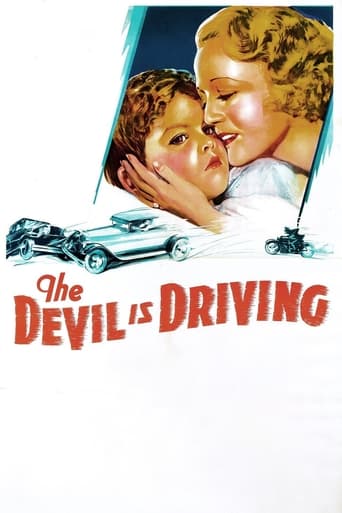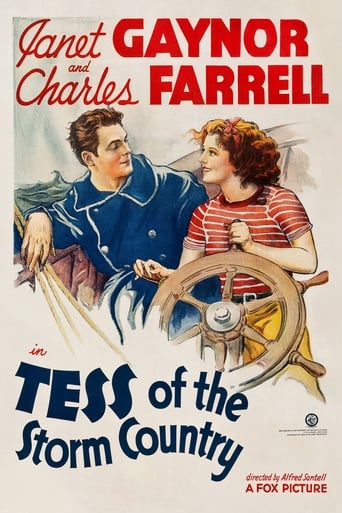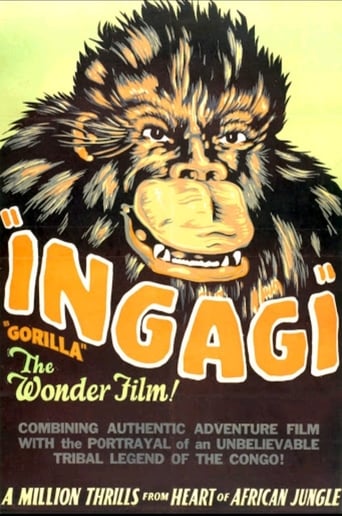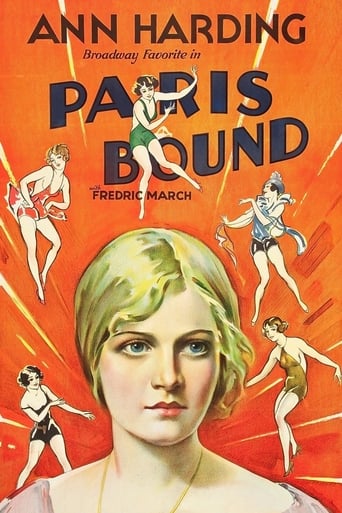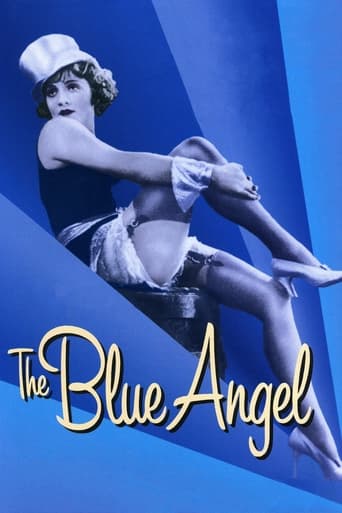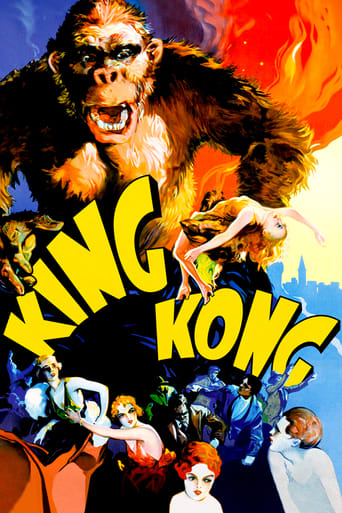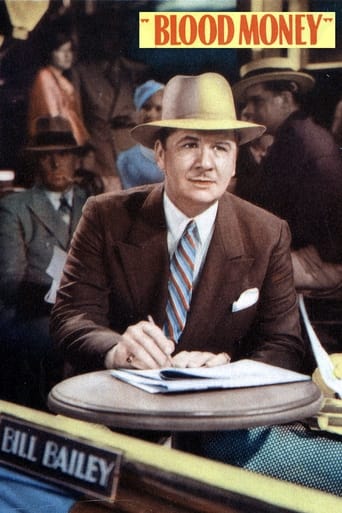
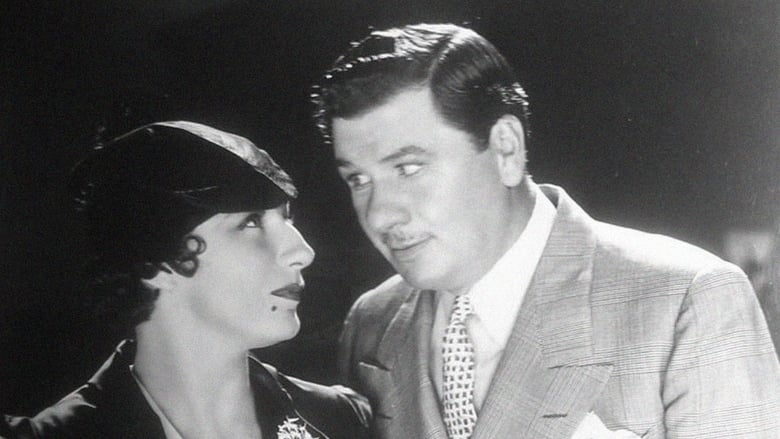
Blood Money (1933)
The title refers to the business of affable, ambitious bail bondsman (and politically-connected grifter) Bill Bailey, who, in the course of his work, crosses paths with every kind of offender there is, from first-time defendants to career criminals.
Watch Trailer
Cast


Similar titles
Reviews
It's a real shame that you cannot buy this most engaging movie any more, as the distributor seems to have gone out of business. "Blood Money" is a really interesting movie, formerly available on an excellent DVD disc, released by Vintage Film Buff, "Blood Money" (1933) was directed with a real punch and considerable style by the super- talented Rowland Brown, who makes the most of an extremely gritty screenplay in which the charismatic George Bancroft plays a bloodsucking bail bondsman and the lovely Frances Dee (of all people) a masochistic, high society floozy. Judith Anderson is also in there pitching as the hero's former glamour interest (!) while the legendary Blossom Seeley sings a couple of Rodgers and Hart numbers.
Bail bondsman George Bancroft is known all throughout New York City and encounters people from every scrape of society in this pre-code crime drama. But he's going to need every ounce of street-smarts when he strikes up an acquaintance with kleptomaniac Frances Dee, a woman with a rather animistic sexual appetite. Judith Anderson gets to display a rare glamorous side here as the nightclub hostess obviously in love with Bancroft, with her famous mole darkened into a beauty spot. Dee gives Bancroft several looks that It's nice to see her playing a softer character. This is a fast-moving programmer, made on a dime, but not showing it. Quick edits, snappy photography and dialog, nice musical interludes by Blossom Seeley (singing such standards as "Melancholy Baby"), and a side of seedy New York sung about in the same year's "42nd Street" diluted in most movies. There's hints about lesbianism in addition to Dee's whacked-out libido. Tons of familiar character actors pop in and out, most notably Etienne Girardot, Chick Chandler (as Anderson's gangster brother), Clarence Wilson and Edward Van Sloan. There's even a very young Lucille Ball in a quick appearance! An exciting dog racing sequence is one of the film's visual highlights, and the finale is downright suspenseful, like something Hitchcock might do.
I called this film a "Pre-Code" film because up until the strengthened Production Code was enforced in 1934, Hollywood was a very sleazy place by even today's standards! While in the mid-30s through the 50s films were sanitized (in some cases, too much), in the Pre-Code days, topics like adultery and extreme violence were common and it was not too unusual to hear cursing, discussions of abortion or prostitution and even occasionally nudity--even in supposedly family films like TARZAN AND HIS MATE! While BLOOD MONEY isn't nearly as rough and family unfriendly as many of these films, it deserves to be considered a Pre-Code style film because the main character and his wife had an "open marriage"--he was allowed to sleep around as long as he "came home to her when the day was through". Also, the film features a bad woman who loves to break laws and have sex--though in the later 30s and for the next twenty or more years, women were NOT supposed to particularly like sex! The story is about a guy named "Bill Bailey" (George Bancroft) and he's a rather resourceful but sleazy character who is a bail bondsman and best friends with the mob. Through conniving, blackmail or what have you, Bill is able to get practically anyone off for any crime--provided they can pay! Into this supposedly charmed life comes a truly crazed young rich lady (Frances Dee)--a woman who is addicted to stealing, promiscuity and self-destruction. At first, his affair with her is approved of by his wife (Judith Anderson) but when Dee steals some bonds and sets up the wife's brother, Bill's life falls apart---leading Bill to become the mob's #1 target! This results in one of the most exciting endings in a 30s film I have ever seen, as a bombing plot to kill Bailey is discovered at the same time they also discover that Dee was responsible for the mess! Decent acting, nice pacing and direction and an exciting and daring script, this is a good example of a Pre-Code film that has managed to stay exciting even more than 70 years later.
Bail bondsman Bill Bailey's motto is "Bailey for Bail", and he always has a fistful of cash for any felon who needs bail money. Bailey has plenty of friends in the crime world, and plenty of enemies among the city's district attorneys. But most of Bailey's "friends" are strictly the fair-weather type; his only true friend is Ruby Darling, who sees plenty but reveals very little. Bailey and Ruby spend a lot of time going to nightclubs where the women smoke cigars and dress like men.Bailey has got a hot passion for Elaine Talbert (who does NOT dress like a man), but Elaine prefers guys who treat her rough and make her like it. Elaine persuades her boyfriend to steal some financial securities, confident that (if he gets caught) good old Bailey will bail him out.Meanwhile, some of Bailey's gangster pals have decided he's been breathing too long. They invite Bailey to join them at the pool hall for a friendly game of eight-ball. Oh, yeah: everybody but Bailey knows that the eight-ball is full of nitroglycerin ... if Bailey pots the black, he goes boom. Desperately, Ruby races to the pool hall to warn her friend. Will she get there in time to stop Bill Bailey's billiard-ball bomb, or will Bailey end up behind the eight-ball?"Blood Money" is a weird film, strangely fascinating. It was written and directed by Rowland Brown, a brilliant film-maker whose promising career was ruined by his penchant for violence. After punching out several Hollywood producers who got in his way, Brown decided to relocate to England for a fresh start. His credentials and his substantial talent won him the assignment to direct Leslie Howard in "The Scarlet Pimpernel" ... but, once again, a minor disagreement with a producer led to violence, and Brown was blackballed.SPOILERS COMING. "Blood Money" features some strange depictions of 1930s sexuality. There's a mannish woman in the nightclub; she offers Bailey a cigar and calls him a "big cissy". Elsewhere, Bailey bullies a cabdriver and calls him a "fag". (The cabbie is played by beefy Matt McHugh, an actor not usually cast in "swish" roles.) Bailey's love interest Elaine is clearly a sexual masochist, who goads men into beating her. Frances Dee, who usually played virginal good-girl roles, gives the best performance of her career here. At the end of the film, Elaine meets a young woman - weeping, her clothes torn - who has just been beaten and violated by her prospective employer. Elaine asks for the man's address, implying that she'll take action against him ... but, when we see the look of eager delight on her face, we know why she's really going there.Watch for a brief appearance (in the nightclub sequence) by vaudeville star Blossom Seeley, singing a Rodgers and Hart ballad called "The Bad in Every Man". If this obscure song sounds familiar, that's because Richard Rodgers later used the same tune (with a new lyric by Lorenz Hart) as the much better-known song "Blue Moon"."Blood Money"'s climactic scene with the explosive eight-ball is ridiculous, especially since Buster Keaton had already played this same idea for comedy (with an explosive 13-ball) in "Sherlock Junior". But Judith Anderson (later a Dame of the British Empire) plays her role well, despite some corny dialogue, and the eight-ball is defused in an unexpected way. My rating for 'Blood Money': 9 out of 10.


